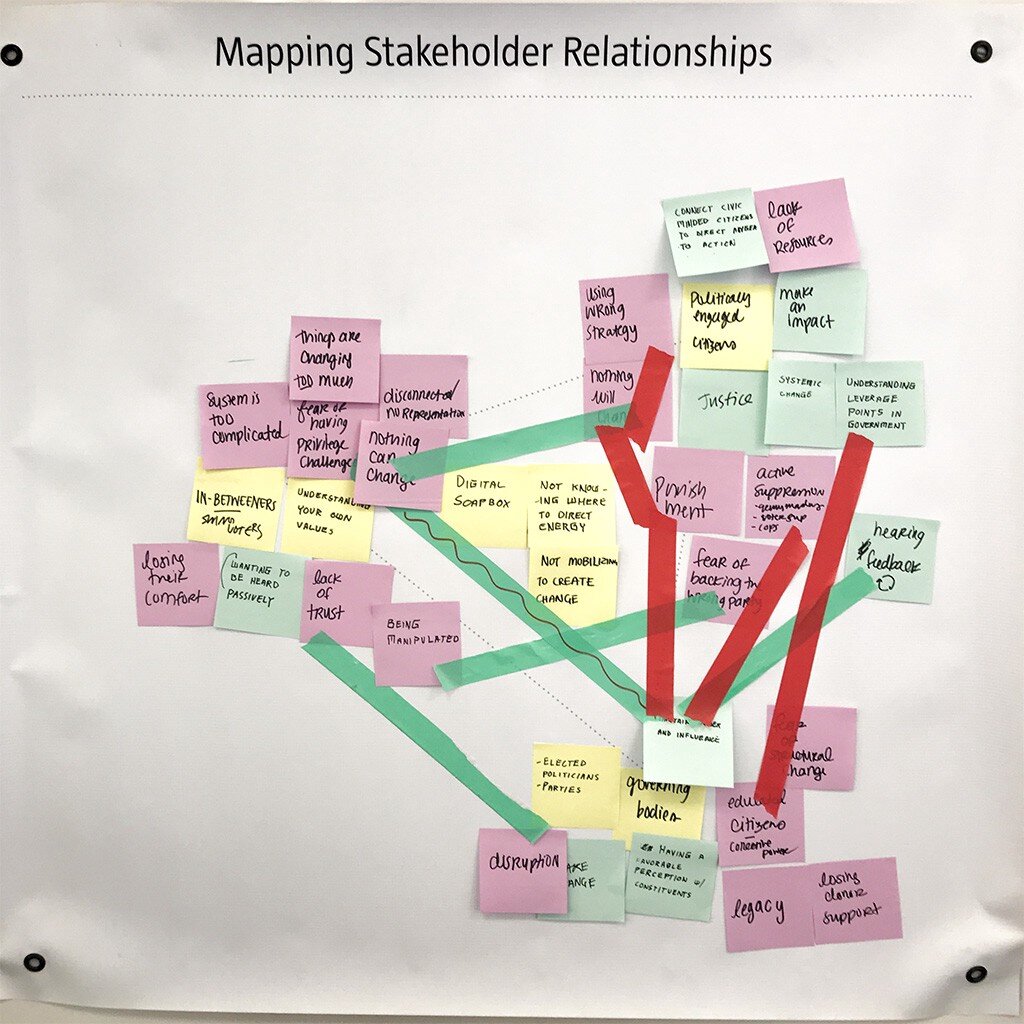What can we teach about civic engagement?
Last week our teams mapped out the stakeholders for our chosen topic (citizenship and grassroots).
Our stakeholder map was stolen from the studio. This was the last picture taken before it went missing. If have any information, call: 1-800-STOLEN-MAP No questions asked if you return it. Really, at this point we all just want closure.
By looking at the tension between groups, we can easily get overwhelmed. What was most helpful was to recognize where common interests exist between stakeholders. These should provide opportunities for engagement, or perhaps even leverage points between groups in conflict (or perceived conflict). Additionally, we identified a disturbing aspect: asymmetry. While there were mutual and shared interests between our three groups, there were also some goals that actually provided benefits at the expenses of others.
The easiest way to understand this dynamic is to think about big tobacco. Smokers want and desire cigarettes. They are willing to pay for them, even when discouraged through taxation. They smoke throughout the day, despite knowing that it has a negative impact on health. Who benefits the most in this relationship? In the short term, the smoker benefits. In the long term, the tobacco companies benefit. These relationships are exploitative, but also difficult to break.
Reactionary politics benefit a minority of the powerful at the expense of everyone else, but it also provides validation to a cynical and disengaged citizenry. For those who insist that politics is self-serving, and incapable of providing value to the public, it is very easy to be proven correct, even if the outcomes that produce that validation are not beneficial.
